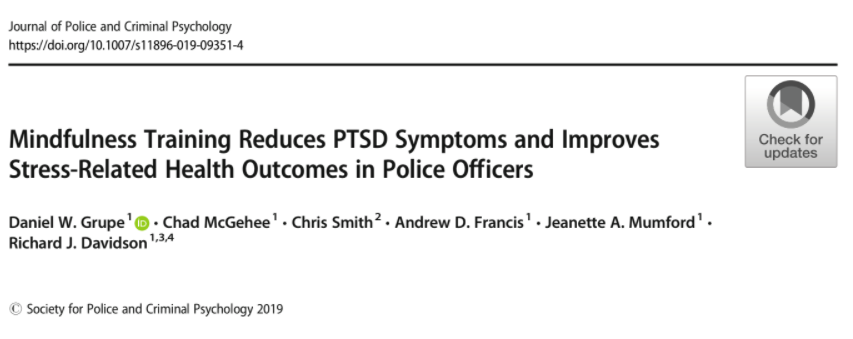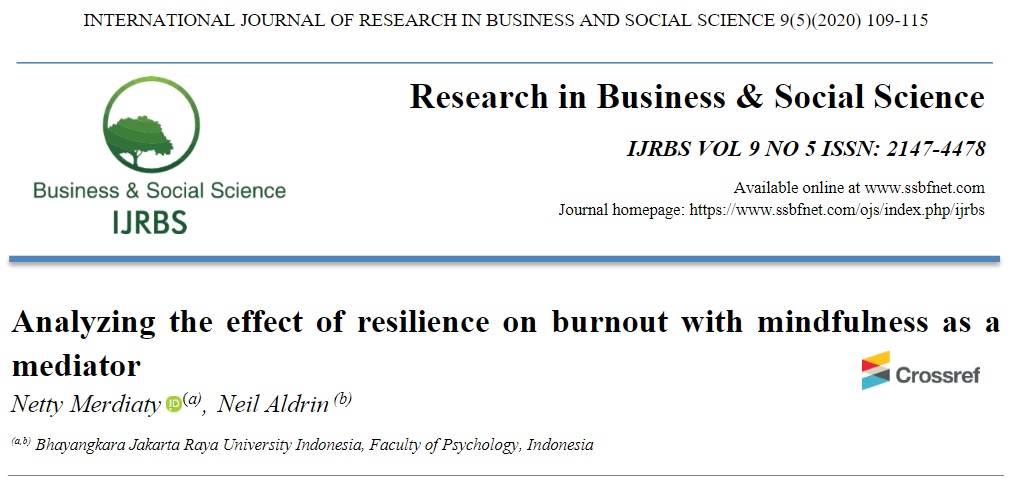mindfulness,
Self-regulation & resilience
how accepting awareness of the present moment increases self-regulation and resilience
what is mindfulness?
What is mindfulness?
John Kabbat-Zinn, a father of western mindfulness approach, defines mindfulness as a moment to moment non-judgemental awareness.
Mindfulness is a practice that helps to create a space between you and what is going on which then decreases being overly reactive. This ultimately leads to a higher self-regulation of thoughts, emotions, and behaviors linking to improved performance and increased well-being and health. Mindfulness, therefore, significantly contributes to effective stress-management maintaining resilience.
There’s exponentially growing research showing that when you train your brain to be mindful, you’re actually physically restructuring your brain which is called neuroplasticity. The main impact of mindfulness training is on the amygdala (the emotional part of the brain):
- Compared to those who do not practice mindfulness regularly, the amygdala is smaller among those who do practice regularly. Additionally, mindfulness practice strengthens the connections between your amygdala and other parts of the brain that send the calming response back to amygdala, when triggered. As a result, your brain is trained and shaped to be less reactive to any stimulus, and your stress response level decreases.
Mindfulness explained by John Kabbat-Zinn
Neuroplasticity and its impact explained
mindfulness & self-regulation
What is self-regulation?
There are two forms of self-regulation; behavioral and emotional. Behavioral self-regulation entails acting in accordance with your goals and values. Emotional self-regulation is the ability to respond to the ongoing demands of an experience with the range of emotions in a manner that is sufficiently flexible to delay spontaneous reactions as needed and appropriately manage disruptive emotions and impulses. Simply put, self-regulation is the control of oneself, by oneself. This also entails controlling the impact that thoughts may have on you as they come flooding in during intense situations.
In much of our work, we seek to promote self-control and self-regulation. Research shows us that self-control/regulation allows for the performance flexibility to adjust and respond accordingly in the most stressful of situations, not necessarily in the sense of taking time to meditate while performing critical tasks but in quick, immediate, sometimes subtle responses such as one breath only for proper composure.
When focused on the outcomes that we CAN’T control, we often miss focusing on self-regulating our physiological state (which we CAN control by tapping into our parasympathetic and sympathetic nervous system). Effective self-regulation can significantly contribute to the desired outcome we seek. Much in the same way that self-regulation has positive impacts on other aspects such as medically to help reduce blood pressure or to help improve some developmental handicaps, mastering self-regulation can also vastly improve our performance by allowing for an appropriate response when it matters.

mindfulness & resilience
through RESEARCH lens
Mindfulness is currently one of the most studied topics across domains, including performance psychology with over 5,000 research articles published on this topic. Below is a just a tiny fraction of what this research brings to US, mental performance consultants, and to YOU, performers seeking to enhance your self-regulation for optimal performance and remaining ready and resilient.
Mindfulness has been shown to improve or increase:
Sleep & recovery
Stress-management
Resilience
Concentration
PTSD prevention
Psychological flexibility
First responders
First responders such as law enforcement officers and firefighters are routinely exposed to traumatic stressors, including threats of violence, assaults, and fatalities. These stressors are linked to poorer mental and physical health, including increased risk for burnout, PTSD, reduced longevity, depression, and maladaptive coping such as alcohol use. In past years, the amount of suicides among first responders has exceeded the amount of deaths in the line of duty.
There has been growing research on the impact of Mindfulness on management of undesired situations and outcomes and traumatic events among first responders. Mindfulness training, specifically Mindfulness-Based Resilience Training (MBTR) has been shown to reduce perceived stress, depression, anxiety, disrupted sleep, burnout, and self-reported anger (Christopher et al. 2016).
Another study that looked at the role of resilience in mindfulness training for first responders reported on the conclusions from evaluations of mindfulness-based interventions which found the improvements in nonreactivity predicted reductions in depression symptoms in veterans (Colgan et al. 2016) and increases in predicted stress and anger outcomes in LEOs (Bergman et al. 2016). This really speaks to the impact of self-regulation on managing reactivity which has other positive results on mental health within high-stress environments.

Resilience & burnout

Besides internal exhaustion, depersonalization, and low personal accomplishment, burnout also has behavioral consequences. Aggression, impaired ethical decision-making, disrupted problem-solving, administrative and tactical errors, and falling asleep while driving are common behavioral expressions of a burned out individual.
The researchers found that first responders who attended an 8-week long Mindfulness-based Resilience Training program and developed their skills in mindfulness (particularly non-reactivity) increased their resilience and decreased their burnout.
Post-traumatic stress disorder

Mindfulness-based Resilience Training programs delivered to 30 law enforcement officers employed by the Madison Police Department decreased perceived job stress, and the results remained low even during the 5 months follow up. Officers reported lower exhaustion which is a symptom of burnout. Additionally, the training improved sleep quality among the officers and, as we know, sleep is the main building block of recovery – a crucial component in individual readiness and resilience.
Moreover, mindfulness training resulted in lower symptoms of PTSD, such as hyperarousal. It seems that in this case, mindfulness practice helped reduce perceived stress which ultimately had a positive impact on PTSD symptom reduction.
Sport
Competitive and professional sport typically focus on the outcome of individual or team performance. This can increase the chances of irrelevant thoughts and feelings disrupting the body and mind in performing to its potential at the moment of execution.
As you can see below, mindfulness practice increases focus on the task at hand by promoting an essence of self-regulation. This allows the athlete to properly tune into unproductive thoughts and feelings, put them aside in order to achieve psychological flexibility, and allow the body and mind to immediately adjust and perform at a level that is required at the moment of execution.

Flow state

A study that conducted interviews with elite swimmers revealed that the flow experiences that are associated with optimal performance include similar characteristics to mindfulness and acceptance states. Additionally, mindfulness and acceptance training led to better performance during competitions among golfers.
Psychological flexibility

Psychological flexibility is the ability to stay in contact with the present moment regardless of unpleasant (disrupting) thoughts, feelings, and bodily sensations while choosing one’s behavior based on the situation and personal values.
In 2019, elite soccer players that attended a mindfulness training program and improved their mindfulness and self-compassion also increased their psychological flexibility.
Business world
Given that most business organizations do not provide any wellness services or training, their employees are not equipped by the necessary skills to manage day-to-day work-related stress. Employees then tend to disengage from task performance, social relatioships and lead towards burnout profile as they are getting emotionally exhausted and depersonalized losing a sense of personal accomplishment.
Mindfulness has been shown to have a significant positive impact on increasing resilience that prevents burnout, enhancing social relationships, respond flexibly to changes in demands at work, and overally improve performance while reducing stress and increasing ability to concentrate.

Mindfulness, Resilience & Burnout

Recent research from 2020 found that mindfulness helps increase resilience which ultimately prevents employees from getting burnt out.
Mindfulness & employees' performance quality

There have been multiple studies conducted that showed a direct association between mindfulness skills acquired and increased performance quality.
Mindfulness & job performance among leadership

Mindfulness seems to be also an effective tool for increasing performance within a leadership role as the research on Australian leaders from 2017 confirms.
what happens when you...
Are NOT mindful?
More than not, from moment to moment in our daily activities, we operate on autopilot. When we are operating on autopilot, we utilize what we have done or have learned – habits. This applies not only to our behaviors but more importantly to our mental processes. Our mind becomes habituated to think about the past or worry about the future. As a result, whatever is happening in the present is highly automated, including those thoughts.
Additionally, when not being mindful, we tend to overidentify with whatever is happening around us or within us (situations, thoughts, emotions). This overidentification 1) leads to reactive further behavior, thoughts, and emotions, 2) increases the intensity of and sensitivity to whatever we are experiencing (i.e. stress). This process is called fusion. We are fused/identified with a particular situation, our thoughts, and our emotions.
ARE mindful?
With mindfulness practice, we create a space between what is happening around/within us (stimulus) and our reactions, which ultimately breaks the cycle of reactivity and sensitivity. This process is called defusion and occurs when we acknowledge/notice the thoughts, feelings, and reactions surrounding a situation, we observe them, and, most importantly, we stop identifying with them. This distancing or defusion allows us to self-regulate our response to these thoughts and emotions and behave according to the situation.
To explain this principle, simply look at your hand – as you are watching it, would you say the hand is you? Probably not. The same principle applies to your thoughts and emotions. As a result, the cycle of stimulus-response is broken and our reactions (bodily, mental) weaken.
Besides reducing stress and anxiety, mindfulness also:
- improves immune system
- improves sleep (a prerequisite for proper stress-management)
- lowers blood pressure
- decreases the risk of developing a heart disease
- helps deal with the pain
- reduces depression
the three pillars of mindfulness
present moment awareness
First, you acknowledge and notice what is going on around you or within you (i.e. what thoughts/emotions you have).
Acknowledging and watching allows us to create a space between the stimulus and the response, which allows for non-reactiveness, equanimity, and control over the response. The cycle of reactiveness is broken (see above).
created space between your experience and the observer
By paying attention to your internal experiences (thoughts/emotions) within the present moment, you create some space between those experiences and yourself.
You stop identifying with what you observe. You stop reacting to it.
non-judgemental approach
With the space created, you no longer develop/stick to unproductive reactions to those experiences.
The reactions (attitudes, comments, judgments) still might arise in your mind, but you maintain the distance from them as these also become objects of your observation.
how to practice mindfulness
Pay attention, observe, let it go or let it be, self-regulate
What thoughts are you having? What emotions and feelings are you experiencing at the moment? How are you responding to a certain stimuli? When you are stressed, how does it change your physiological and mental processes (i.e. shaky hands? increased heart rate? catastrophic thinking?)
Such questions encourage you to pay attention to the present moment. They help you start noticing and exploring what is happening which leads to defusion (nonidentification) from thoughts and emotions, without a judgment, and allows for effective self-regulation.
Below are three most common types of mindfulness practice:
Mindfulness of thoughts:
Body-scan:
Focus object:
can mindfulness increase resilience?
Neuroscientist and the father of Mindfulness in western society:
Mindfulness in 30 seconds:
Neuroscience of Mindfulness in 4 Minutes – great video the explains what is happening when practicing mindfulness:
(self-)compassion
Mindfulness practice wouldn't be complete without (self-)compassion
What is self-compassion?
Self-compassion entails being understanding toward ourselves when we suffer, fail, or feel inadequate, rather than ignoring our pain or flagellating ourselves with self-criticism.
In other words, self-compassion means that you will handle yourself and elevate yourself regardless of the outcome.
With that, self-compassion goes beyond and is more robust than self-esteem in a way that self-compassion relieves pressure from fear of failure, pressure from actual failures, and improves our perception of self-worth that can be easily shaken when we build self-worth around self-esteem and vice versa.
As a result, self-compassion shifts your mindset from fixed (focus on the outcome) to growth (focus on the process, learning).
References
- brian.bishop@aeementalperformance.com
- Denver Metro Area, CO


